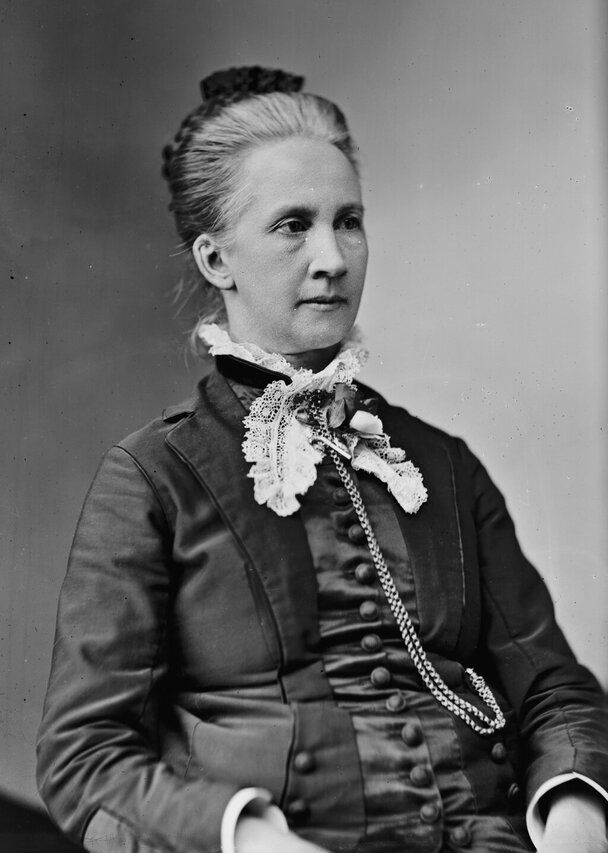
Belva Lockwood - Presidential Run
Born In Niagara County, NY, Belva Lockwood was a feminist trailblazer in education, law, politics, and equal rights for women.
In the 1880s, Belva Lockwood was successfully practicing law in Washington D.C. She had come a long way from her Niagara County, NY roots and had repeatedly come out on top in her battles against sexism. In 1879, she became the first woman to argue a case in the U.S. Supreme Court. In 1884 and 1888, she became the first woman to run for President of the United States. Her presidential campaigns were neither successful nor without controversy.
In 1884, she chose suffragist Marietta Stow as her running mate and ran as a third-party candidate under the National Equal Rights Party. Lockwood “believed wholeheartedly in equal rights and shared political opinions […] with well-known Women’s Rights activists like Susan B. Anthony and Elizabeth Cady Stanton.” The male press mocked Lockwood and her campaign, just like they mocked the suffragists.
The American public also criticized Lockwood. Back then, women were treated like second-class citizens. “[T]he common sentiment was that they belonged in the home and shouldn’t participate in more manly pursuits like governance and law.” They couldn’t even vote! Nonetheless, Lockwood “believed that her bid for the presidency would help women gain the right to vote and to be accepted into partisan politics. She could not vote, she told reporters, but nothing in the Constitution prevented men from voting for her.” In 1884, about 4,100 men in eight states voted for Lockwood. Democrat Grover Cleveland won the election, with 4.87 million votes. Her 1888 presidential bid was even less successful.
In 1905, the landmark legal case U.S. v. Cherokee Nation made it all the way to the U.S. Supreme Court and resulted in another historic win for Lockwood. Since 1875, she had represented the Cherokee Nation in a multimillion dollar lawsuit against the federal government for treaties that were made in previous decades but not honored.
Belva Lockwood died in 1917 and was buried in Historic Congressional Cemetery in Washington, D.C. She was 86. In the small town of Royalton, NY, the Belva Lockwood Memorial and Garden commemorates the site of her birthplace and many achievements. Alongside a popular trail in Royalton Ravine Park stand the ruins of Lockwood’s first homestead as a wife and mother.
In 1920, women finally won the right to vote with the passage of the 19th Amendment. In 1983, Belva Lockwood was inducted into the National Women's Hall of Fame in Seneca Falls, NY—another small town, it is aptly known as the Birthplace of Women’s Rights.
Hope L. Russell, Ph.D.

